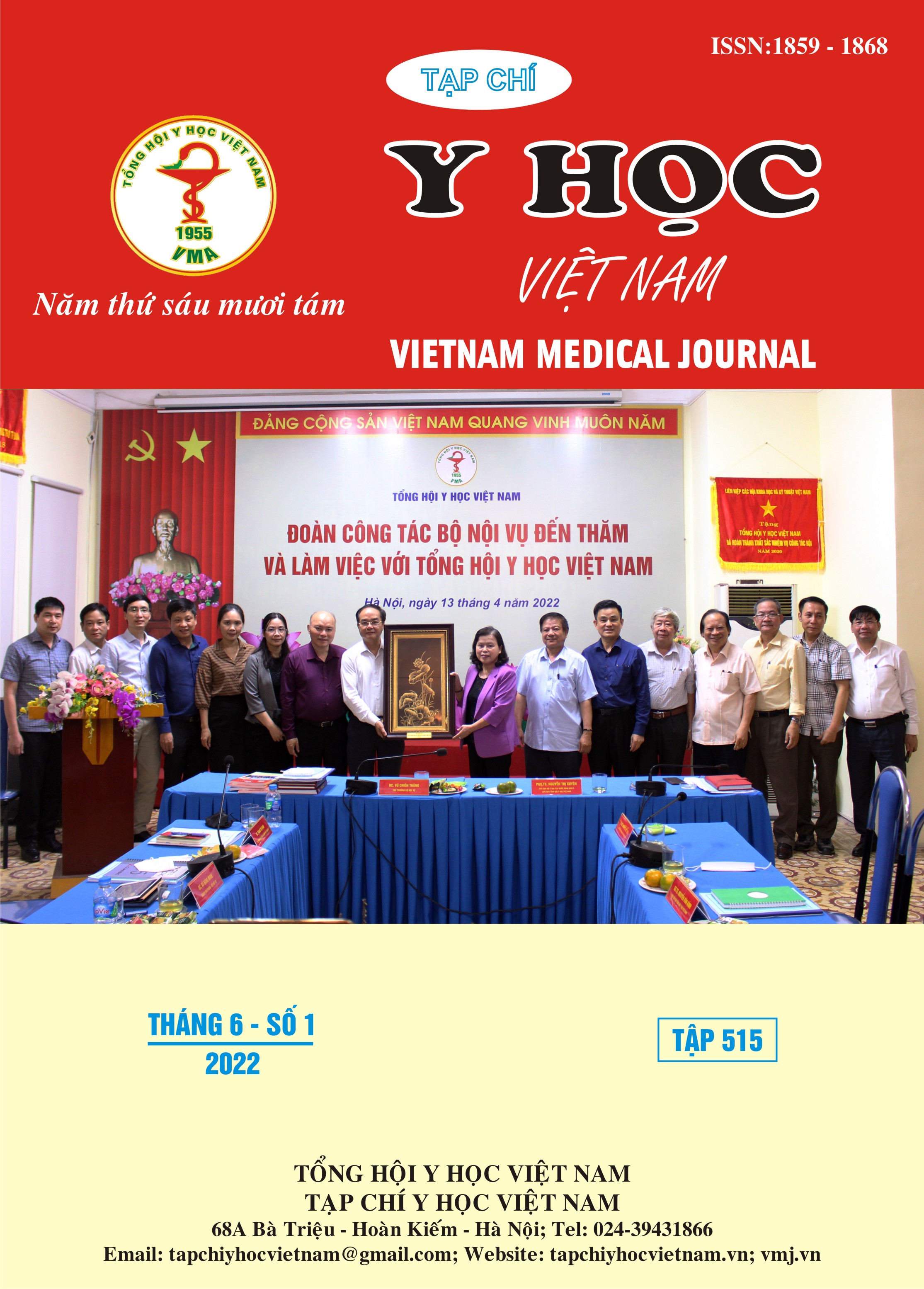LAPAROSCOPIC COMPLETE MESOCOLIC EXCISION FOR LEFT COLON CANCER
Main Article Content
Abstract
Background: Laparoscopic complete mesocolic excision (CME) for the treatment of colon cancer has improved long-term survival and become the standard procedure in surgical management of colon cancer. Objectives: Evaluate mid-term outcomes of laparoscopic complete mesocolic excision in stage I - III left colon cancer and the quality of oncologic specimens. Patients and methods: The prospective study of patients diagnosed left colon cancer. The patients underwent laparoscopic complete mesocolic excision between January 2018 and July 2021 at Binh Dan Hospital. Results: 68 patients (38 females and 30 males) were included. The mean age is 58,35 ± 10,67 years. The mean operative time was 180,56 ± 40,30 minutes. The mean volume of intraoperative blood loss was 100,20± 27,56ml. There were no complication during operation. Post operative complications occurred in 13,23% of patient, included 7,35% of surgical site infection, 4.41 % of anatomosis leakage and 21,47% of postoperative obtruction. The mean length of stay was 8,24 ± 4,82 days. The mean number of lymph nodes retrieval was 17,42 ± 4,52 nodes. There were 42,64% of patients with node metastasis. The length of speciment was 38,56 ± 8,20 cm. The percentage of surviving patients who didn’t have metastasis is 87,3%. Conclusions: Laparoscopic complete mesocolic excision is safe to treat left colon cancer with less postoperative complication and improve the mid-term oncological outcome. The quatily of oncologic speciment is good.
Article Details
Keywords
left colon cancer, complete mesocolic excision
References
2. Galizia G, Lieto E, De Vita F, Ferraraccio F, et al, (2014), "Is complete mesocolic excision with central vascular ligation safe and effective in the surgical treatment of right-sided colon cancers? A prospective study", Int J Colorectal Dis, 29 (1), pp. 89-97.
3. Gao Z, Wang C, Cui Y, Shen Z, et al, (2020), "Efficacy and Safety of Complete Mesocolic Excision in Patients With Colon Cancer: Three-year Results From a Prospective, Nonrandomized, Double-blind, Controlled Trial", Ann Surg, 271 (3), pp. 519-526.
4. Hohenberger W, Weber K, Matzel K, Papadopoulos T, et al, (2009), "Standardized surgery for colonic cancer: complete mesocolic excision and central ligation--technical notes and outcome", Colorectal Dis, 11 (4), pp. 354-364; discussion 364-355.
5. Ueda K, Daito K, Ushijima H, Yane Y, et al, (2022), "Laparoscopic complete mesocolic excision with central vascular ligation for splenic flexure colon cancer: short- and long-term outcomes", Surg Endosc, 36 (4), pp. 2661-2670.
6. West N P, Hohenberger W, Weber K, Perrakis A, et al, (2010), "Complete mesocolic excision with central vascular ligation produces an oncologically superior specimen compared with standard surgery for carcinoma of the colon", J Clin Oncol, 28 (2), pp. 272-278.
7. Yan D, Yang X, Duan Y, Zhang W, et al, (2020), "Comparison of laparoscopic complete mesocolic excision and traditional radical operation for colon cancer in the treatment of stage III colon cancer", J buon, 25 (1), pp. 220-226.
8. Seow-En I, Tzu-Liang Chen W, (2022), "Complete mesocolic excision with central venous ligation/D3 lymphadenectomy for colon cancer – A comprehensive review of the evidence", Surgical Oncology, pp. 101755.


